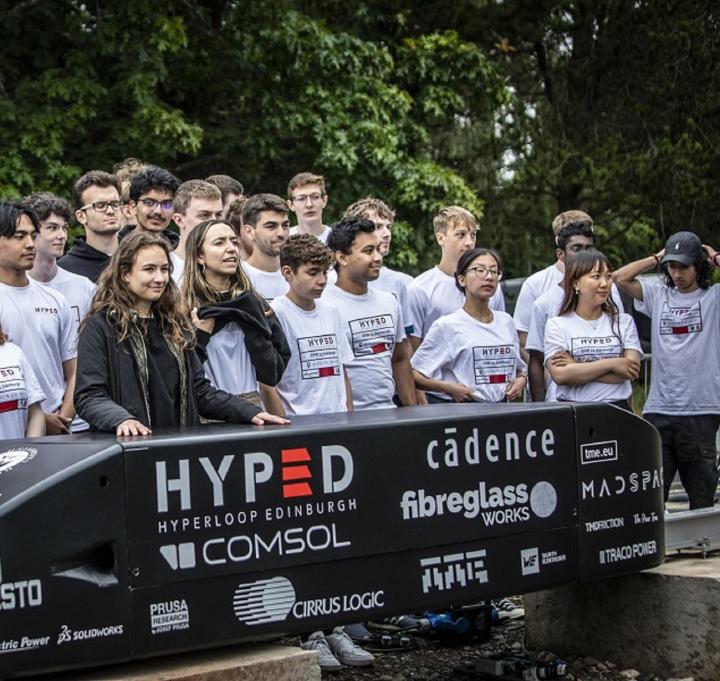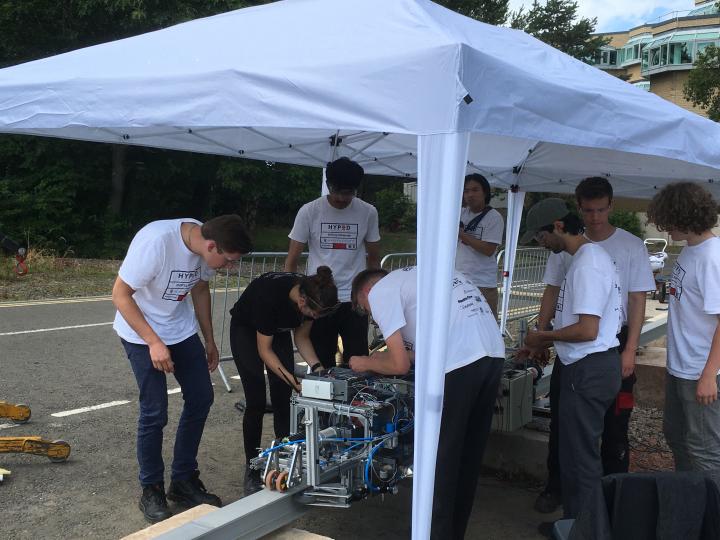University Of Edinburgh Scholars Bring Hyperloop Technology To Life
Dubbed the transport of the future, Hyperloop is an ultra-high speed transport system, which could see passengers and cargo travelling at speeds of around 600-700 miles per hour inside cylindrical pods.
Sustainable speed
The pods – made from fiberglass and carbon fibres – will travel in near-vacuum tubes designed to magnetically levitate and glide down the track, without the slowing effects of friction.
The system is engineered to reduce aerodynamic drag and increase fuel efficiency, thus creating an environmentally friendlier alternative to other modes of transport.
According to Government statistics, transport produced almost a quarter of the UK’s total greenhouse gas emissions in 2020. However, there is still increasing demand for faster, more efficient and affordable transport options, experts say.

HYPED
Edinburgh’s student team – HYPED – is part of an international movement working to bring Hyperloop technology closer to reality.
Following the construction of its first prototype pod in 2017, the team has grown into a thriving and diverse society of around 130 students from across the University.
It provides a testing ground for students to tackle the technical challenges of building a functioning Hyperloop pod from scratch, including this year’s entry which the team named ‘Pod Ness’.
International focus
This year HYPED hosted European Hyperloop Week – welcoming student teams from 24 countries including Norway, Switzerland, Spain, Holland, Turkey and India.
The annual gathering brings student engineers, computer scientists, physicists and project managers together to test, compete, network and share ideas and about Hyperloop.
Demos
Demonstration day saw the teams present their latest prototypes and test them on individually built tracks on the University’s King’s Buildings campus.
Awards were presented for the best pod and specific elements including: mechanics, traction, sensing, controls and electrical systems.
The week concluded with a public outreach day in the centre of Edinburgh where all the teams talked to visitors about the potential of Hyperloop and the benefits of studying STEM subjects.

Awards
Pod Ness was a top four finalist in the award for electrical subsystems and received a full-scale award for technical contributions towards the advancement of Hyperloop.
I commend the team for their hard work they have put in leading up to European Hyperloop Week. In addition to presenting their latest technical prototype, the team networked with other student teams and industry representatives by sharing ideas of the future of the transport. The activities are meant to foster innovation through collaboration, and the team is high-spirited after a week which brought their minds together to shape plans for the next season.
The School of Engineering was very proud to host European Hyperloop Week this year and would like to congratulate our own HYPED team for how well they did in the competitions. It was fantastic to see such an array of futuristic hardware, engineering, scientific and business skills on display from students in 24 countries across the globe.
“We thank all the competitors for coming to spend the week at the University’s King’s Buildings and I would like to express my particular thanks to all the students and staff of the College of Science and Engineering who volunteered to help organise the event. Everyone had a great time and we are looking forward to next year already.

